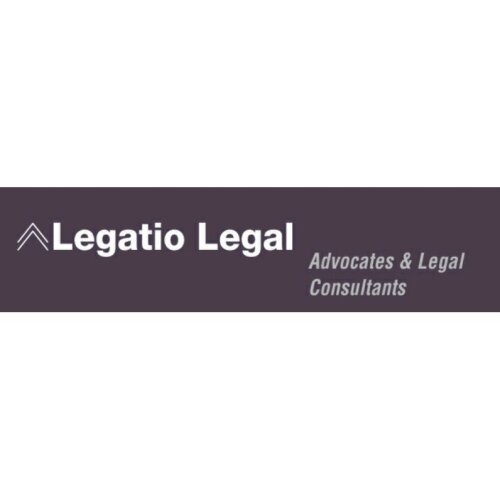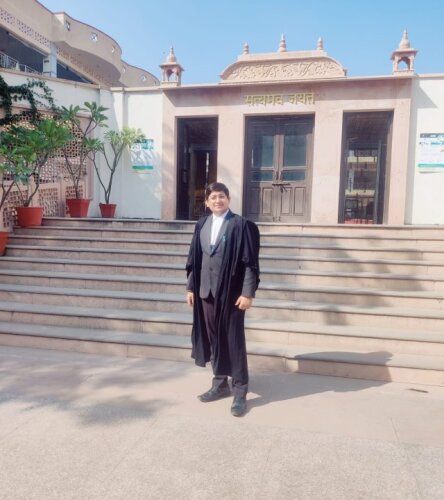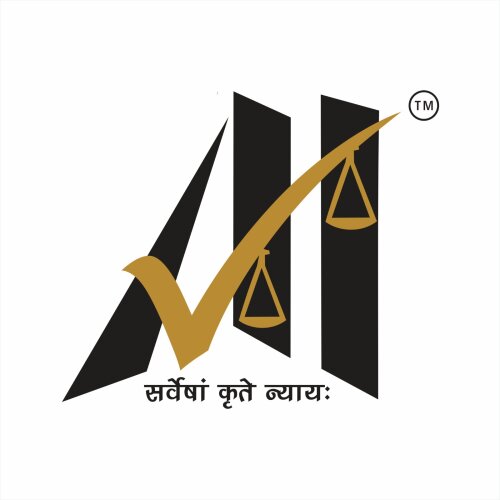Best Education Law Lawyers in Jaipur
Share your needs with us, get contacted by law firms.
Free. Takes 2 min.
List of the best lawyers in Jaipur, India
About Education Law in Jaipur, India
Education Law in Jaipur, India, primarily encompasses the set of legal rules and regulations that govern the education system within the city and the broader state of Rajasthan. It covers a range of topics including the administration of educational institutions, the rights and responsibilities of educational bodies, teachers, students, and parents, as well as issues relating to school funding, discrimination, special education needs, and the enforcement of educational standards. The laws aim to provide a framework that ensures quality, accessibility, and fairness in education for all citizens.
Why You May Need a Lawyer
Individuals or institutions may seek legal help in Education Law for several reasons. Common situations include disputes over school admissions, challenges related to discrimination or unequal treatment, cases of bullying or harassment, issues concerning special education needs, teacher employment concerns, or matters relating to school governance. Additionally, legal assistance might be needed when dealing with compliance with state or national education policies, securing government funding or grants, or when contesting disciplinary actions against students or staff.
Local Laws Overview
Jaipur, located in Rajasthan, adheres to both central and state education laws. Key local laws affecting education include the Rajasthan Non-Government Educational Institutions Act, the Right of Children to Free and Compulsory Education Act (RTE Act), and various state government regulations governing private and public schools. The RTE Act mandates free and compulsory education for children aged 6 to 14 years, ensuring that educational institutions meet minimum quality standards. Implementing guidelines often address the management of admissions processes, qualifications for educators, curriculum standards, and school safety measures.
Frequently Asked Questions
What is the Right to Education Act?
The Right to Education Act, or RTE Act, was enacted by the Indian government to ensure free and compulsory education for children aged 6 to 14. It outlines the obligations of the government and private schools towards children, aiming to improve educational access and quality.
Are private schools obligated to adhere to the same laws as public schools?
Yes, private schools in Jaipur must comply with the overarching education laws in India, including the RTE Act. They are also subject to additional state-specific regulations concerning their operations, admissions, and employee qualifications.
How are disputes between parents and schools typically resolved?
Disputes between parents and schools can be resolved through several avenues, including school grievance committees, involvement of the District Education Officer, and, if necessary, legal action through the State Education Tribunal or the courts.
What rights do students have at school?
Students have the right to a safe, non-discriminatory learning environment, access to education irrespective of caste, creed, or gender, and protection from bullying or harassment. Special provisions also exist for students with disabilities and from economically weaker sections.
How can I ensure a school is compliant with local education laws?
Compliance can be verified by reviewing the school’s registration with the state education department, ensuring adherence to the RTE guidelines, and consulting the District Education Officer for any specific queries or complaints.
What are the legal obligations of teachers?
Teachers in Jaipur are required to possess the necessary qualifications as stipulated by state and national guidelines and adhere to professional conduct standards. They are also responsible for creating an inclusive and effective learning environment.
How is school management held accountable?
School management is accountable to the state education authorities, which conduct regular inspections and audits. Schools are required to maintain transparency in operations and funds through audits and reporting mandates.
Can tuition fees be regulated by the government?
Yes, the government has the authority to regulate tuition fees through state-specific regulations to prevent unreasonable fee hikes and ensure that private schools do not overcharge students.
What should I do if my child faces discrimination at school?
If your child faces discrimination, you should initially approach the school's grievance redressal cell. If the matter remains unresolved, you may escalate the issue to the District Education Officer or seek legal counsel for further action.
Where can I find more information about education laws in Jaipur?
You can obtain detailed information from the Rajasthan state education department's official publications, relevant legal literature, or by consulting an education lawyer.
Additional Resources
For further assistance, consider reaching out to the following resources:
- The Department of Education, Rajasthan
- Central Board of Secondary Education (CBSE) regional office
- Local NGOs focused on education rights such as Pratham or Teach For India Jaipur chapter
- Legal Aid Society of Rajasthan High Court for free or subsidized legal advice
Next Steps
If you require legal assistance regarding education law in Jaipur, consider the following steps:
- Identify the specific legal issue or question you face.
- Compile relevant documents and facts relating to your case or query.
- Contact a specialized education lawyer or legal aid organization for advice.
- Consider mediation or alternative dispute resolution before pursuing formal legal action where possible.
- Stay informed about local education policies and guidelines to better understand your rights and responsibilities.
Lawzana helps you find the best lawyers and law firms in Jaipur through a curated and pre-screened list of qualified legal professionals. Our platform offers rankings and detailed profiles of attorneys and law firms, allowing you to compare based on practice areas, including Education Law, experience, and client feedback.
Each profile includes a description of the firm's areas of practice, client reviews, team members and partners, year of establishment, spoken languages, office locations, contact information, social media presence, and any published articles or resources. Most firms on our platform speak English and are experienced in both local and international legal matters.
Get a quote from top-rated law firms in Jaipur, India — quickly, securely, and without unnecessary hassle.
Disclaimer:
The information provided on this page is for general informational purposes only and does not constitute legal advice. While we strive to ensure the accuracy and relevance of the content, legal information may change over time, and interpretations of the law can vary. You should always consult with a qualified legal professional for advice specific to your situation.
We disclaim all liability for actions taken or not taken based on the content of this page. If you believe any information is incorrect or outdated, please contact us, and we will review and update it where appropriate.














